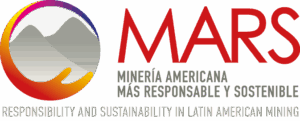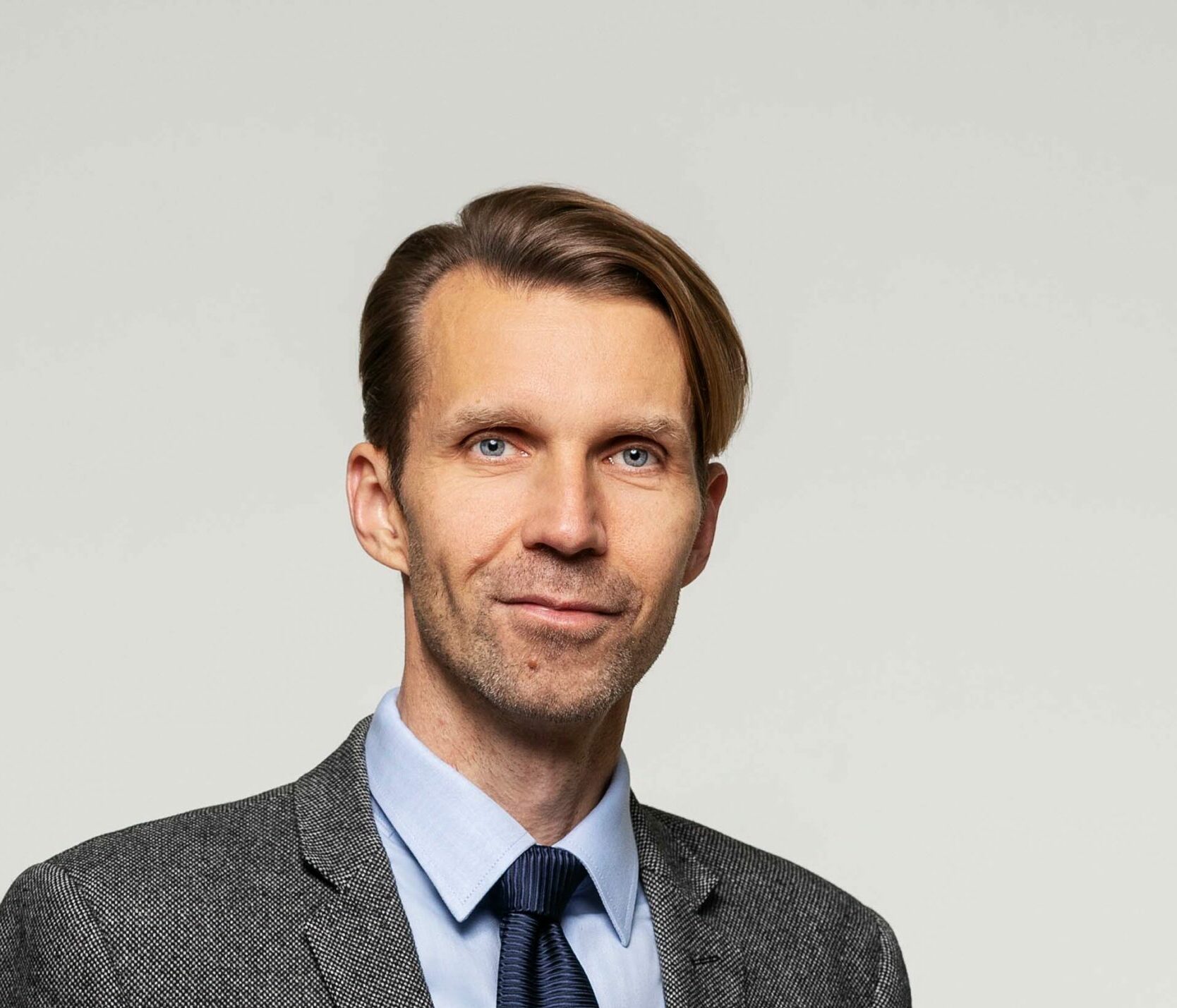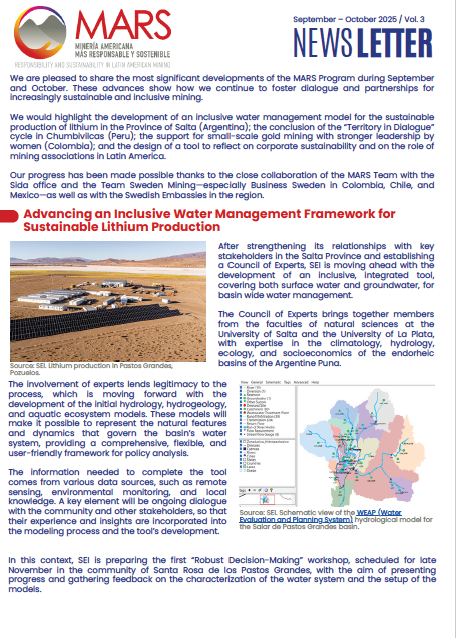Responsibility in Latin American Mining
Securing minerals for the green transition by addressing environmental and human rights risks

Our programme for more responsible and sustainable mining – also known by its Spanish acronym MARS (Minería Americana más Responsable y Sostenible) – takes a regional perspective on the sustainability challenges posed by the increasing demand for minerals needed for the global energy transition.
The programme is the result of co-creation between business, the financial sector, embassies, experts and representatives of civil society. MARS is fully funded by the Swedish International Development Cooperation Agency (Sida) and implemented by NIR in close cooperation with partners Stockholm Environment Institute (SEI), Vincular Center Foundation (FCV) and the Alliance for Responsible Mining (ARM).
MARS also works with strategic alliances, including the Organisation for Economic Co-operation and Development (OECD), the Inter-American Development Bank (IDB), the Global Reporting Initiative (GRI), and the United Nations Development Programme (UNDP).
Based on consultations with affected stakeholders, companies across the mineral supply chain, civil society organisations and leading experts, and with support from Swedish embassies in the region, we have formed a Swedish-Latin American partnership.
Through this partnership, we promote more responsible mining as a regional competitive advantage.
Our routes to impact
Regional Alignment of Responsible Business Conduct (RBC) Standards and Practices
Regional
Through peer exchanges, trainings, and the promotion of good practices, we assist regional stakeholders in leveraging their crucial role in the global energy transition. We support them in aligning with Responsible Business Conduct (RBC) practices and in implementing existing human rights and environmental sustainability standards. Our key partners include mining associations, mining companies, and representatives from civil society and indigenous peoples.
We actively supports and strengthens existing regional initiatives. We also strive to increase our impact on sustainability challenges by involving our members, partners, regional business partners and other relevant stakeholders.
Inclusive Water Management in Lithium Extraction
Country: Argentina
Lithium is today a key component for the electrification of vehicles and the generation and storage of electricity. A large portion of the world’s lithium resources are found in Argentina, Bolivia and Chile.
The production of lithium can impact local ecosystems and water supplies, and in turn the traditional economic activities of the surrounding communities. At the same time, it has the potential to contribute to revitalising local economies, job creation and better infrastructure.
Our partner, the Stockholm Environment Institute (SEI), has developed a process for more inclusive water management. By promoting participatory processes and tools, SEI aims to facilitate a more equitable and constructive dialogue among stakeholders. Together, we can contribute to improved conflict management in connection with lithium production.
Multi-Stakeholder Dialogue in Copper Mining
Country: Peru
Copper is important in renewable power generation, electric vehicles and wiring and cabling for energy storage, and is often mined on a large scale. In many countries, mining is key to economic development as it generates investment, tax revenues and can contribute to development in remote areas. At the same time, large-scale copper mining is one of the main causes of social conflict as it is linked to pollution, relocation of communities and disputes over the use of land and water resources in the arid Andean region.
In cooperation with the Inter-American Development Bank, we are creating an inclusive stakeholder platform, bringing together companies, local governments, and communities to develop a roadmap and make decisions regarding local development. This model has shown promise in reducing conflict related to large-scale mining in the region and has the potential to be institutionalised.
Strengthening Small-Scale Mining for Development and Sustainability
Country: Colombia
Small-Scale Mining (SSM) plays a vital role in the livelihoods of rural communities in Colombia. Yet, the formalised segment remains underexplored in terms of its challenges, opportunities, and contributions to local development.
Through its partnership with the Alliance for Responsible Mining (ARM) and in coordination with the Colombian Mining Association (ACM), MARS strengthens formal SSM by promoting tailored strategies that foster sustainable practices, enhance competitiveness, and improve environmental and social outcomes.
Building a Future on Responsible Copper Mining
Country: Colombia
Colombia is positioning itself as an emerging copper player in the world. While the country is recognised for its vast mineral wealth, copper mining is still in its early stages, with limited industrial-scale production and exploration activity.
In partnership with the Stockholm Environment Institute (SEI), MARS aims to engage companies, government, and civil society. The goal is to foster dialogue and create a shared roadmap for responsible copper development that aligns with international standards and the objectives of a just energy transition.
Together, these efforts aim to build inclusive and resilient mining models that contribute to territorial development, reduce conflict, and support Colombia’s role in the global energy transition.




